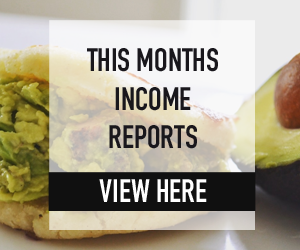What is Cryptocurrency and Why is it Important?
In simple terms, cryptocurrency is a digital or virtual form of currency that is secured by cryptography. Unlike traditional forms of currency, it operates independently of a central bank and is decentralized, meaning it is not controlled by a single entity. The most well-known cryptocurrency is Bitcoin, but there are now thousands of different cryptocurrencies in circulation.
Cryptocurrency has gained popularity in recent years due to its potential to disrupt the traditional financial system. It offers fast, secure, and low-cost transactions, making it an attractive alternative to traditional forms of payment. Additionally, many people see cryptocurrency as a hedge against inflation and an opportunity for investment.
What is the Current State of Cryptocurrency in Colombia?
Colombia has been relatively open to the use of cryptocurrency, with the government showing a positive attitude towards it. In 2016, the Colombian government launched the “Colombia Fintech” initiative, which aims to promote the growth and development of the fintech industry, including cryptocurrency. This initiative has led to the creation of several cryptocurrency exchanges and other related businesses in the country.
In 2018, the Colombian government also launched a sandbox program for fintech companies, which included cryptocurrency exchanges. The program allows these companies to test new products and services in a controlled environment before launching them to the public. This has helped to create a more favorable regulatory environment for cryptocurrency in Colombia.
What are the Benefits of Using Cryptocurrency in Colombia?
There are several benefits of using cryptocurrency in Colombia, both for individuals and businesses. These include:
- Low transaction fees: Cryptocurrency transactions are typically much cheaper than traditional banking fees, making it an attractive option for businesses looking to reduce costs.
- Fast and secure transactions: Cryptocurrency transactions are processed quickly and securely, without the need for intermediaries like banks.
- Protection against inflation: Cryptocurrency is not affected by inflation, making it a more stable and reliable form of currency.
- Greater financial inclusion: Cryptocurrency allows individuals who may not have access to traditional banking systems to participate in the global economy.
- Opportunities for investment: Cryptocurrency has the potential for high returns on investment, making it an appealing option for individuals looking to diversify their portfolios.
What are the Challenges of Using Cryptocurrency in Colombia?
While Colombia has been relatively open to cryptocurrency, there are still some challenges that users may face. These include:
- Lack of regulations: While the Colombian government has shown a positive attitude towards cryptocurrency, there are still no specific regulations in place. This can create uncertainty for users and businesses operating in the cryptocurrency space.
- Volatility: Cryptocurrency values can be highly volatile, meaning that users may face significant losses if they do not carefully monitor the market.
- Limited acceptance: While there are a growing number of businesses in Colombia that accept cryptocurrency, it is still not widely accepted as a form of payment. This can make it challenging to use for everyday transactions.
- Security concerns: As with any digital currency, there is a risk of hacking and theft. Users must take precautions to protect their cryptocurrency, such as using secure wallets and two-factor authentication.
What are the Most Popular Cryptocurrencies in Colombia?
While Bitcoin is the most well-known and widely used cryptocurrency globally, there are several other popular cryptocurrencies in Colombia. These include:
- Ethereum (ETH): The second-largest cryptocurrency by market capitalization, Ethereum is a decentralized platform that enables the creation of smart contracts and decentralized applications.
- Ripple (XRP): Ripple is a real-time gross settlement system that also offers currency exchange and remittance services. It has gained popularity in Colombia due to its partnerships with local banks.
- Litecoin (LTC): Litecoin is a peer-to-peer cryptocurrency that allows for fast and low-cost transactions. It is often seen as a more accessible alternative to Bitcoin.
- Dash (DASH): Dash is a privacy-focused cryptocurrency that offers fast and secure transactions. It has a strong presence in Colombia, with several businesses accepting it as a form of payment.
- Monero (XMR): Monero is a privacy-focused cryptocurrency that offers enhanced anonymity and security. It has gained popularity in Colombia due to its focus on privacy.
How Can You Buy and Use Cryptocurrency in Colombia?
There are several ways to buy and use cryptocurrency in Colombia. These include:
- Cryptocurrency exchanges: There are several cryptocurrency exchanges operating in Colombia, such as Buda, Bitso, and Panda Exchange. These exchanges allow users to buy, sell, and trade various cryptocurrencies.
- Peer-to-peer transactions: Users can also buy and sell cryptocurrency directly to other individuals through peer-to-peer platforms such as Localbitcoins and Paxful.
- Cryptocurrency ATMs: Colombia has a growing number of cryptocurrency ATMs, which allow users to buy and sell cryptocurrencies using cash.
- Payment processors: Some businesses in Colombia use payment processors like Bitpay and Coinbase to accept cryptocurrency payments from customers.
- Mining: Users can also mine cryptocurrencies, although this requires specialized equipment and technical knowledge.
Other Ways People Asked This Question
- Is Colombia a Good Place for Cryptocurrency Mining?
- What Are the Taxes on Cryptocurrency in Colombia?
- Are There Any Cryptocurrency Regulations in Colombia?
- How Does Cryptocurrency Help the Colombian Economy?
- What Are the Risks of Investing in Cryptocurrency in Colombia?














